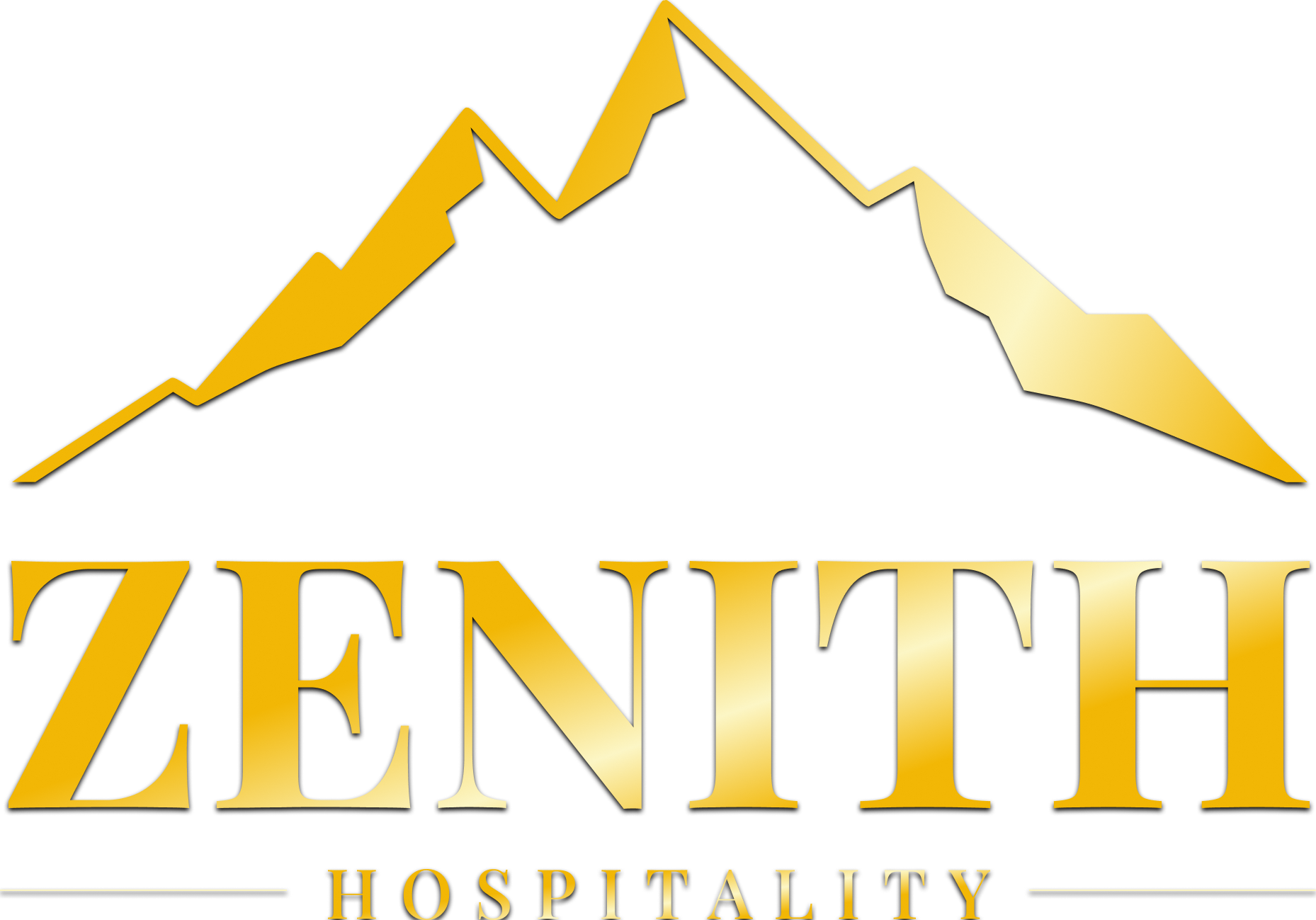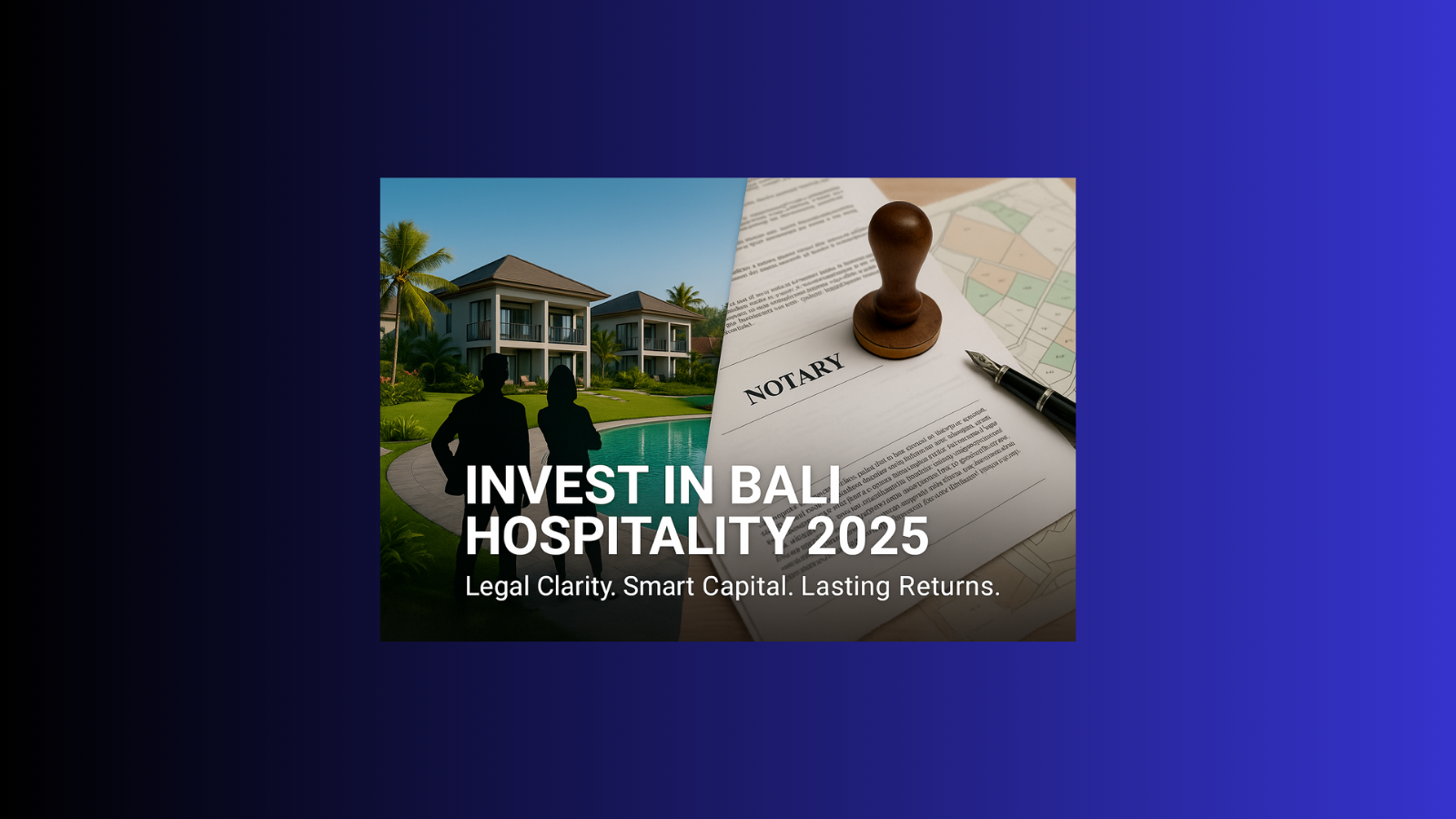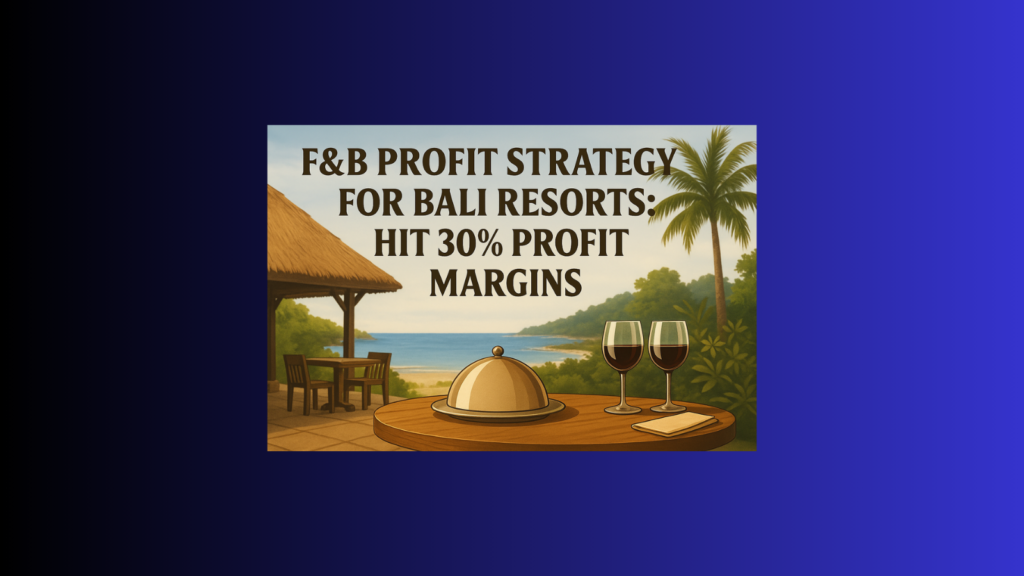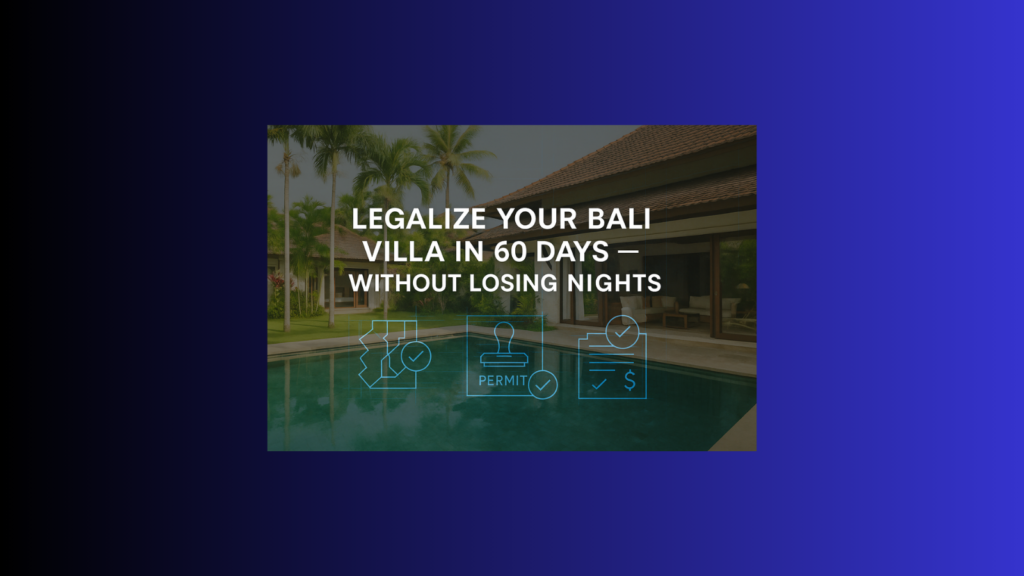Introduction
Invest in Bali Hospitality 2025 is more than a trend — it’s a legal and strategic imperative. As foreign and domestic interest in Bali’s hospitality sector intensifies, 2025 presents a unique window of opportunity. But this opportunity comes with a condition: clarity. Investors must navigate not only the island’s promising returns but also its complex land use classifications, licensing systems, and evolving national frameworks. This guide breaks down exactly what investors need to know to move from curiosity to compliance — and to seize the moment in Bali’s evolving tourism economy.

Land Titles for Investing in Bali’s Hospitality Sector (2025)
To successfully invest in Bali hospitality in 2025, understanding the land titles is critical:
- Hak Milik (Freehold): Exclusive to Indonesian citizens, providing indefinite ownership.
- Hak Guna Bangunan (HGB or Right to Build): Ideal for corporate entities including foreign-owned companies (PT PMA), allowing up to 80 years of construction rights.
- Hak Pakai (Right to Use): Suitable for foreign residents with valid residence permits, granting long-term residential rights but limiting commercial exploitation.
- Hak Sewa (Leasehold): Popular among foreigners, offering flexible long-term property usage without ownership complexities.
For more details, contact Zenith Hospitality Global.
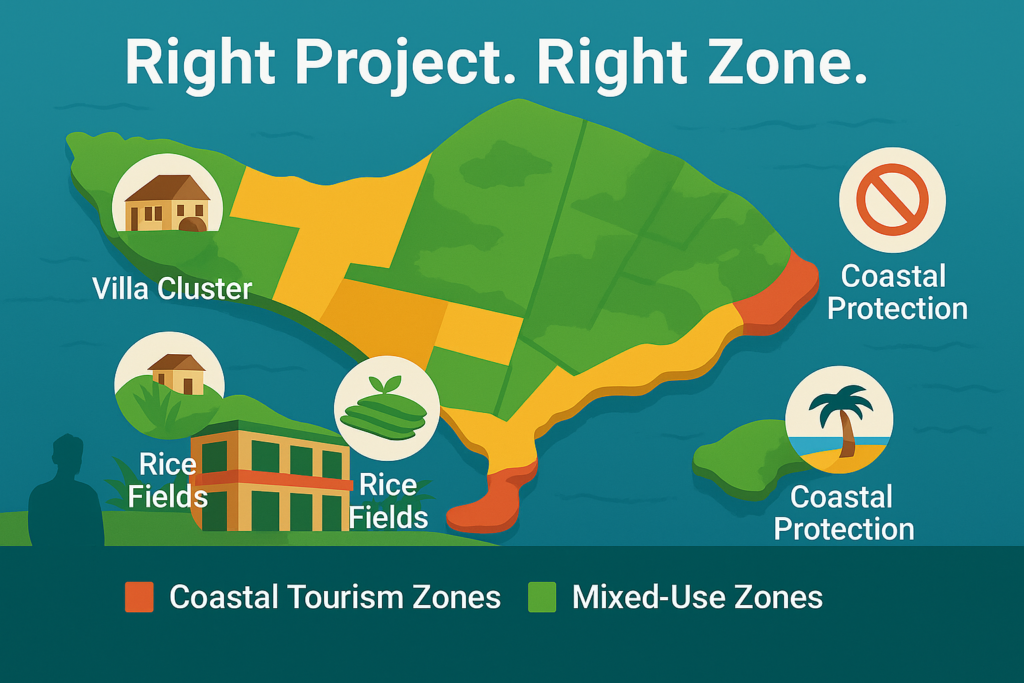
Zoning Rules for Bali Hospitality Sector Developments
Compliance with zoning regulations is crucial for anyone looking to invest in Bali hospitality in 2025:
- Tourism Zones: High-density areas for hospitality development.
- Mixed-Use Zones: Allowing flexible combinations of residential and commercial hospitality projects.
- Residential Zones: Primarily for housing, with restrictions on large-scale hospitality projects.
- Agricultural & Green Zones: Protected from development, prohibiting tourism development.
Access zoning guidelines via Bali Provincial Zoning Guidelines.
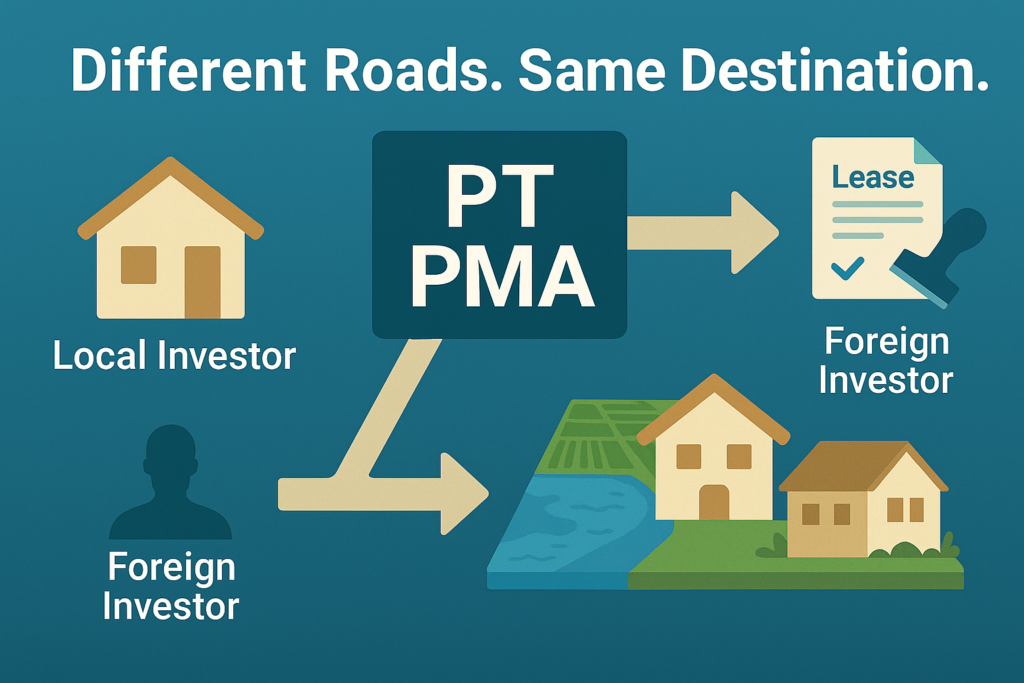
Foreign vs Local Investment in Bali’s Hospitality Sector (2025)
- Local Investors
Local investors looking to invest in Bali hospitality in 2025 have straightforward property ownership options (Hak Milik).
- Foreign Investors
Foreign investors seeking to invest in Bali hospitality in 2025 must utilize alternative structures, such as PT PMA or leasehold arrangements. Establishing a PT PMA is advisable for full commercial capabilities.
For further guidance, explore Starting a Hospitality Business in Bali.
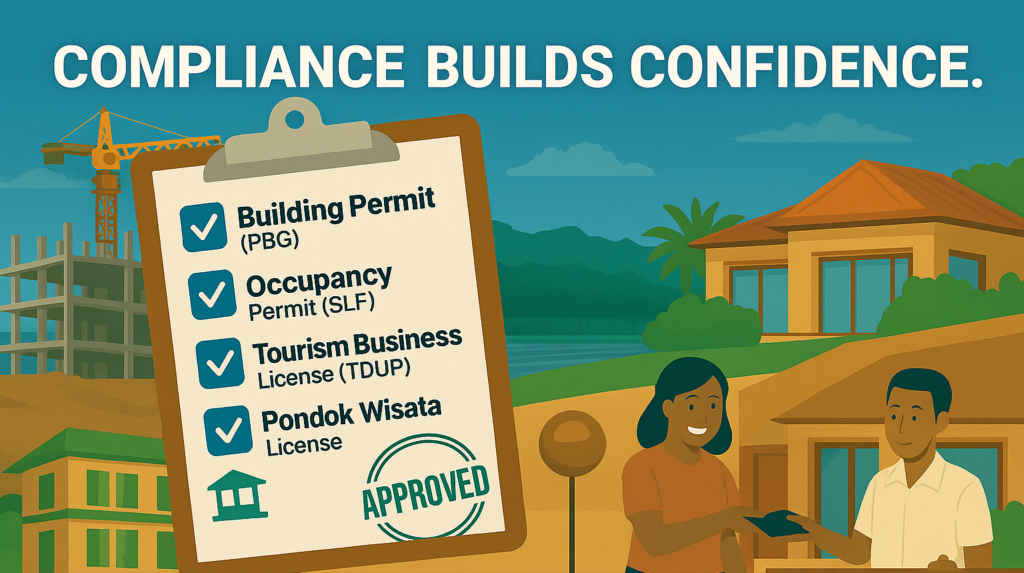
Essential Permits for Investing in Bali’s Hospitality Industry
Essential permits for those aiming to invest in Bali hospitality in 2025 include:
- Building Permit (PBG): Required before construction, ensuring compliance with local zoning and environmental standards.
- Occupancy Permit (SLF): Verifies building completion and adherence to safety regulations.
- Tourism Business License (TDUP): Mandatory for legally operating hospitality accommodations.
- Pondok Wisata License: Required for smaller villa or guesthouse operations.
Further insights are available in our article Navigating Indonesia’s Tourism Policy Innovations.
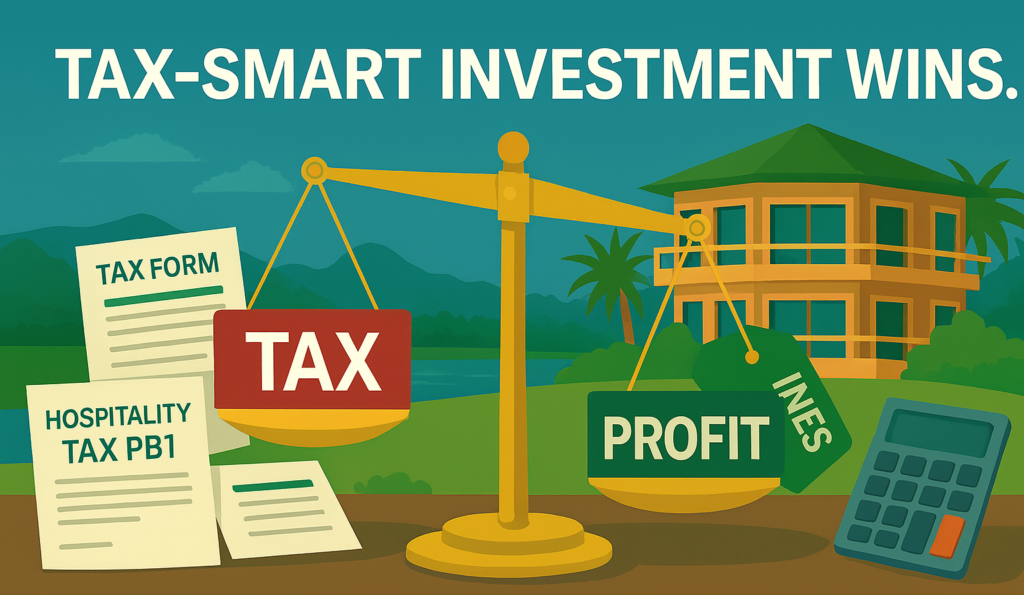
Tax Compliance for Bali Hospitality Investment
Understanding taxes is critical for successful hospitality investment:
- Corporate Income Tax: Standard rate of 22%.
- Local Hospitality Tax (PB1): 10% charged on hotel and restaurant services.
- Property and Transaction Taxes: Including Land and Building Tax (PBB).
Consider tax incentives discussed in Tax Incentives in Indonesia.
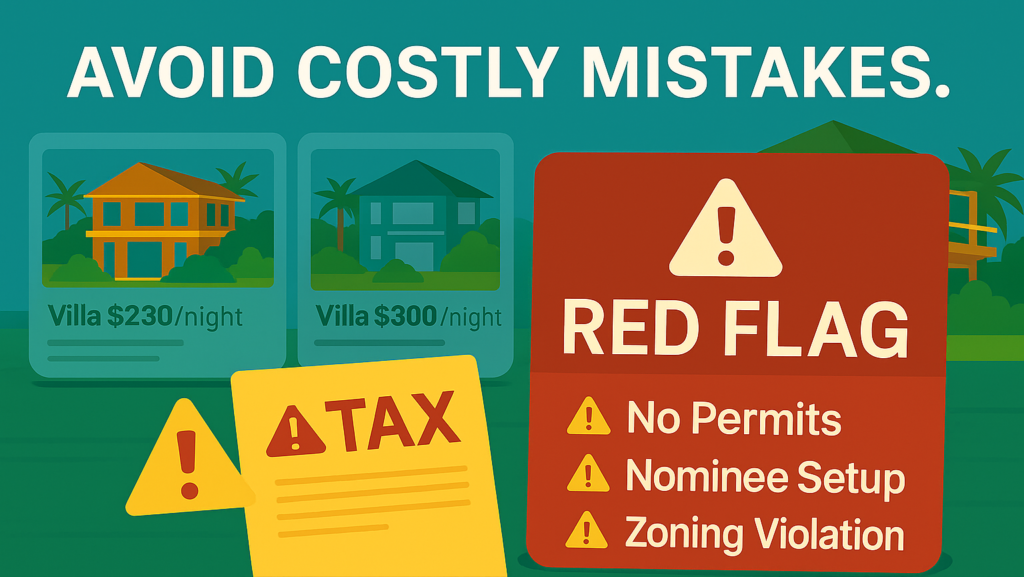
Avoiding Legal Pitfalls When Investing in Bali Hospitality (2025)
Avoid these common risks when investing in Bali hospitality in 2025:
- Illegal Nominee Arrangements: Foreign investors must avoid illegal nominee structures.
- Incomplete or Missing Permits: Obtain all necessary licenses and permits.
- Zoning Violations: Ensure compliance with zoning laws.
Stay informed about regulatory enforcement actions in Bali’s Crackdown on Illegal Businesses.
Conclusion: Building a Sustainable Hospitality Investment
To invest in Bali hospitality in 2025 effectively, investors must carefully navigate land laws, zoning regulations, licensing requirements, taxation, and potential pitfalls. By adhering strictly to regulations and guidelines, investors can secure sustainable and profitable hospitality ventures.
Looking for expert hospitality management services in Bali? Partner with Zenith Hospitality Global and elevate your property to 5-star standards.
Email: hello@zenith-hospitality.com
Phone: +62 821 4480 7110
Website: https://zenith-hospitality.com/
